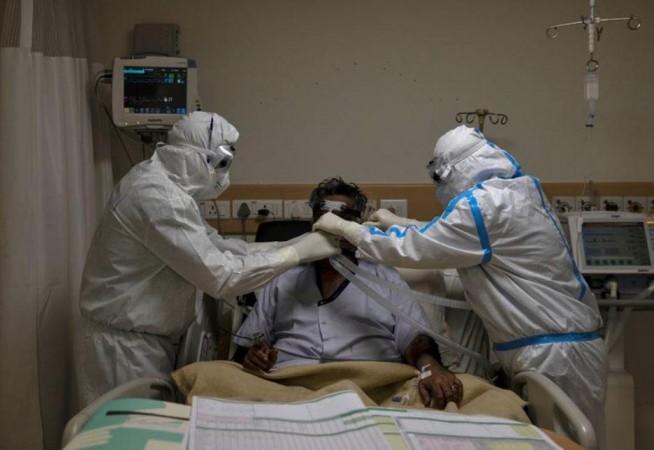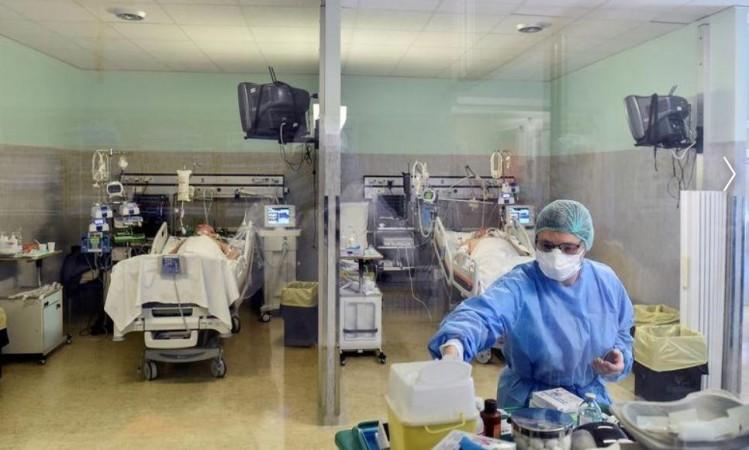
By now we are well aware that coronavirus could manifest in several ways. There could be several symptoms and that it could be different for different people. From common symptoms like fever, headache and tiredness to serious symptoms like difficulty in breathing, chest pain or loss of vision and smell, COVID-19 can manifest in different forms for different patients.
What is delirium?
Now, in the series, another neurological side effect is being reported in COVID-19 positive patients. Delirium- a condition of confusion and paranoid hallucination- is being reported in patients suffering from COVID-19 with severe complications.
Experts say that delirium is not a new condition just linked with coronavirus patients, rather it's most commonly experienced by older patients who are confined to solitary hospital wards like ICU for a long time.
What is unique about delirium in COVID 19 patients is that it is now bedeviling patients of all age groups and not just limited to be experienced by older patients.
What causes delirium?
A long extended stay in the hospital, sometimes over a month, confined on the bed away from loved ones soon spirals in despondence. The trauma of not being able to move or doing basic chores like drinking water or going to water themselves, and constantly surrounded by professionals could trigger anxiety and depression in patients.
Doctors and researchers say that two thirds to three-quarters of COVID-19 patients in ICUs have experienced it in some ways or other.
"It's like the perfect storm to generate delirium, it really, really is," Dr Sharon Inouye, a leading delirium expert, explained it to NYT.
But external conditions are not the only reasons that cause delirium. Doctors say that many times the virus or body's responses to generate neurological effects.

Types of delirium
Termed as hospital delirium, it could range anywhere from "hyperactive delirium" wherein a patient could experience paranoid hallucinations and agitation, to "hypoactive delirium" where the patient has internalized visions and confusion causing him/her to become withdrawn and uncommunicative. Sometimes they can have both.
Those experiencing hyperactive delirium could become so depressed and agitated that they could even try to harm themselves.
"Terrifying and Disorienting"
69-year-old Ron Temko, a mortgage company executive, had been on a ventilator at U.C.S.F Medical Center for three weeks. During a zoom call that nurses in the hospital arranged with his family, he wrote on paper attached to a clipboard, "AK-47" and pointed at his neck where the assault rifle should aim. He urged his family to kill him.
Now at his home after a 60-days hospitalization, Mr Temko said his suggestion to his family stemmed from delirium fueled delusion.
"I was in a paranoic phase where I thought there was some sort of conspiracy against me," he told NYT.
Monitoring symptoms is important
Researchers believe that the condition worsens the longer the patient stays in the hospital without any contact with relatives and confined to a bed.
And as COVID 19 patients are kept isolated from any visitors in the room where even the doctors and staff are dressed in PPE, there is heightened anxiety in patients that things are not normal.
"Monitoring for the development of symptoms should be a routine part of the care we provide," says Dr. Jonathan Rogers from University College London.
Though he maintains that most people will not suffer from mental health problems following coronavirus infection, it could affect some patients really hard, thus the need for monitoring.
As for the best way of going ahead and protecting oneself from contracting the virus in the first place is to practice social distancing, wearing masks when attending COVID-19 patients or going out in public, and most importantly washing your hands regularly with soap and water.









